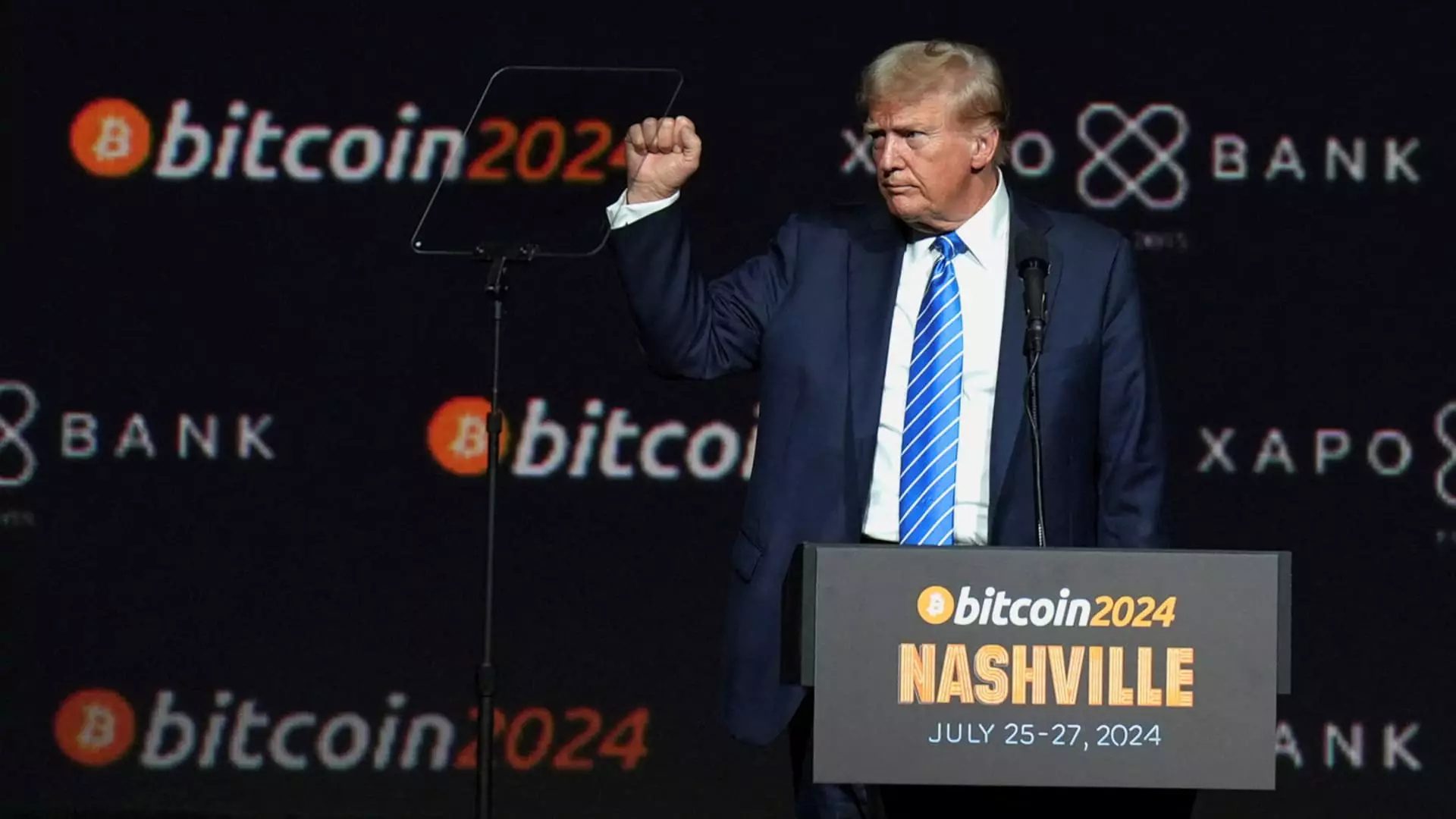Trump Media’s recent announcement of a staggering $2.5 billion raise from institutional investors marks a pivotal moment in the world of cryptocurrency and public companies alike. This endeavor is not merely a financial maneuver; it represents a transformation from a social media platform primarily focused on free speech into a formidable player in the financial services landscape. Introducing such substantial treasury allocations in Bitcoin is a bold strategy that could reshape perceptions about public corporations’ role in digital currencies.
Following the announcement, it was intriguing to observe a nearly 10% decline in the company’s stock price. This volatility underscores the precarious intersection of traditional finance and emerging technologies like cryptocurrency. The deal comprises $1.5 billion in common stock and $1 billion in convertible notes—a clear intent to use these funds to solidify Bitcoin as a core treasury asset. The choice to hold Bitcoin also highlights a growing trend among companies seeking alternative investment approaches, leveraging the cryptocurrency’s perceived stability and potential for growth.
Strategic Partnerships and Market Positioning
The partnership with Anchorage Digital and Crypto.com signifies more than just a custodial arrangement; it is a strategic alliance that connects Trump Media with leading figures in the digital currency space. By being at the forefront of innovative financial solutions, the company aims to offer something distinct to its investors and users. The planned exchange-traded funds, pending regulatory approval, could evoke significant interest by combining traditional securities with baskets of cryptocurrencies, a step that aligns with broader movements towards cryptocurrency adoption among institutional investors.
The backdrop of Bitcoin 2025, one of the year’s largest gatherings of digital asset enthusiasts, enhances the visibility of this announcement. Trump’s activism within the cryptocurrency realm—bolstered by appearances from prominent figures within his administration—signals a concerted effort to position the company as a forefront player in both politics and finance.
Defensive Strategies Against Perceived Discrimination
Diving deeper into Devin Nunes’ statements about Bitcoin as an “apex instrument of financial freedom” sheds light on the defensive nature of this financial strategy. He frames this substantial investment as a counteraction to what he describes as systemic discrimination against conservative businesses by conventional financial institutions. This discourse taps into a prevailing sentiment among Republican circles, framing Bitcoin not solely as a digital asset but as a tool for ideological empowerment against perceived economic biases.
The potential influence of these sentiments on market dynamics cannot be overstated. The company’s focus on financial services comes at a time when increased narratives around banking discrimination are gaining traction. Collaborations with platforms like Crypto.com to launch ETFs could serve as a conduit for wider engagement with financially disenfranchised consumers eager to embrace alternative sources of economic power.
Broader Implications and the Future of Crypto Business
The ambitious plans laid out by Trump Media echo a wider trend seen in the business landscape: the conversion of corporate treasuries into crypto-heavy portfolios. This mimics strategies from companies like MicroStrategy, which have effectively paved the way for Bitcoin integration into standard corporate practice. The execution of such plans not only emphasizes financial innovation but also reinforces a narrative of sovereign financial liberation in an era increasingly defined by digital currencies.
As Trump Media continues to broaden its crypto footprint, its trajectory could set precedents for other politically aligned businesses. The growing interest in Trump-affiliated cryptocurrencies and initiatives such as Truth.Fi suggest that the company seeks to cater not just to traditional markets but also to emerging ones craving a brand that aligns with their philosophies and values.
Moreover, Trump’s latest actions, including an executive order to establish a federal Bitcoin reserve, exemplify the administration’s intent to engage with the financial world deeply, actively reshaping the regulatory fabric surrounding cryptocurrency. This dynamic could incite further investments and institutional buy-in, and it hints at a future where political affiliations and financial opportunities are intricately intertwined.
Ultimately, Trump Media’s engagement with cryptocurrency signals a significant shift in corporate finance that intertwines financial acumen with ideological commitments. This bold move into Bitcoin not only augments its market positioning but also inspires other businesses to reevaluate their strategies in a rapidly evolving economic environment characterized by digital currencies. As the landscape of financial services continues to evolve, Trump’s foray into this realm illustrates that the future of corporate America may well hinge on its ability to adapt to and embrace the digital currency revolution.

